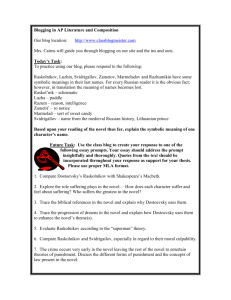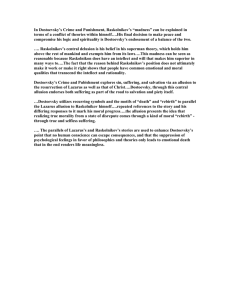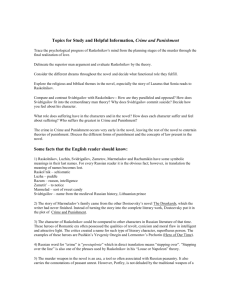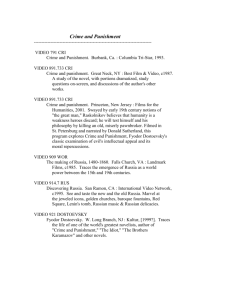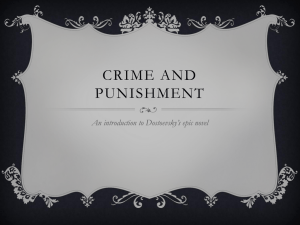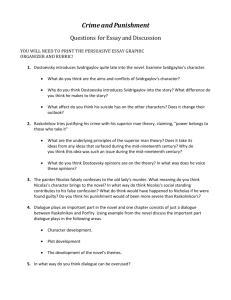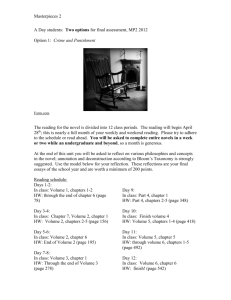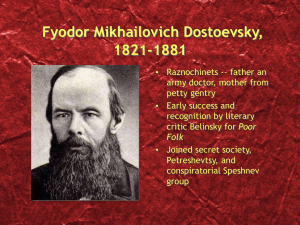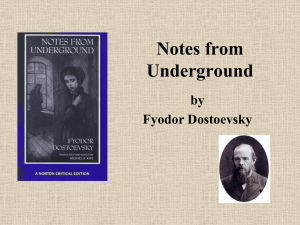possible SS questions on CRIME AND PUNISHMENT
advertisement
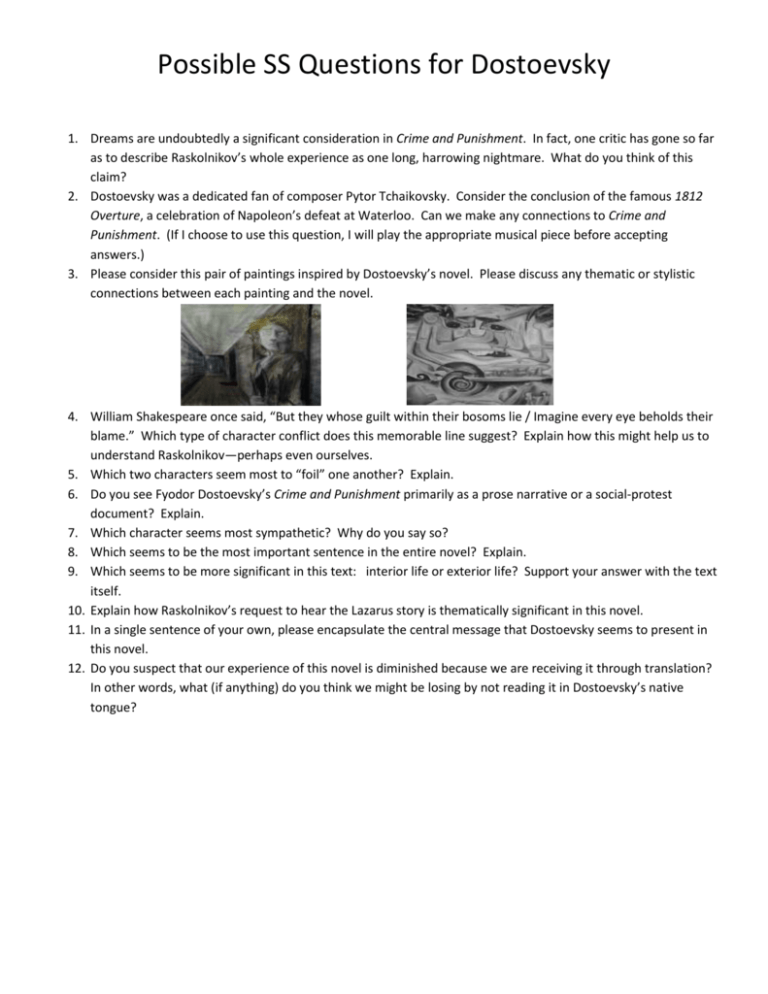
Possible SS Questions for Dostoevsky 1. Dreams are undoubtedly a significant consideration in Crime and Punishment. In fact, one critic has gone so far as to describe Raskolnikov’s whole experience as one long, harrowing nightmare. What do you think of this claim? 2. Dostoevsky was a dedicated fan of composer Pytor Tchaikovsky. Consider the conclusion of the famous 1812 Overture, a celebration of Napoleon’s defeat at Waterloo. Can we make any connections to Crime and Punishment. (If I choose to use this question, I will play the appropriate musical piece before accepting answers.) 3. Please consider this pair of paintings inspired by Dostoevsky’s novel. Please discuss any thematic or stylistic connections between each painting and the novel. 4. William Shakespeare once said, “But they whose guilt within their bosoms lie / Imagine every eye beholds their blame.” Which type of character conflict does this memorable line suggest? Explain how this might help us to understand Raskolnikov—perhaps even ourselves. 5. Which two characters seem most to “foil” one another? Explain. 6. Do you see Fyodor Dostoevsky’s Crime and Punishment primarily as a prose narrative or a social-protest document? Explain. 7. Which character seems most sympathetic? Why do you say so? 8. Which seems to be the most important sentence in the entire novel? Explain. 9. Which seems to be more significant in this text: interior life or exterior life? Support your answer with the text itself. 10. Explain how Raskolnikov’s request to hear the Lazarus story is thematically significant in this novel. 11. In a single sentence of your own, please encapsulate the central message that Dostoevsky seems to present in this novel. 12. Do you suspect that our experience of this novel is diminished because we are receiving it through translation? In other words, what (if anything) do you think we might be losing by not reading it in Dostoevsky’s native tongue?
